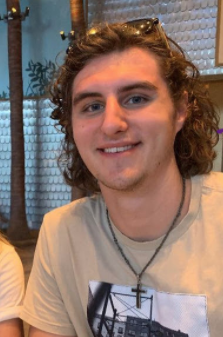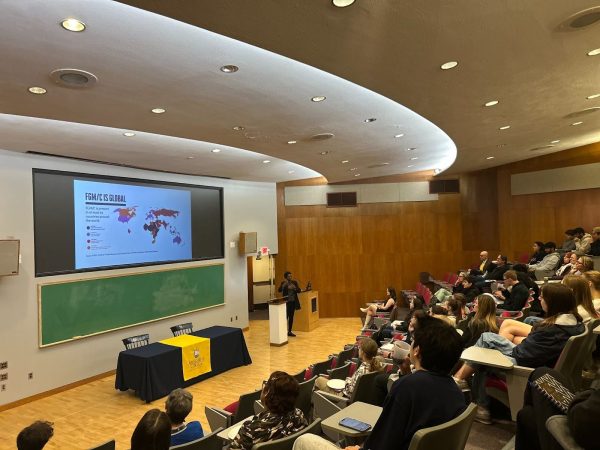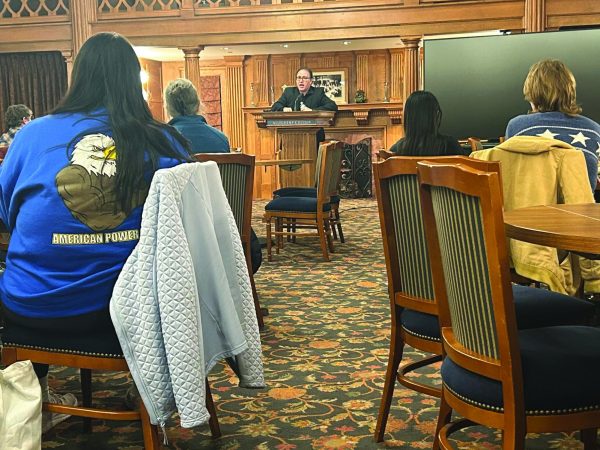A long break makes for a long wait to return to campus
As students begin their eleventh week and counting of their hiatus from campus, one might be inclined to ask: how have they spent their time off?
For many, the break can be seen less as a period of time off and more so as a period spent doing other important activities outside of school.
“I worked out and trained this girl (from my hometown) for one of the military academies she was testing for,” said Deb Nalesnik, ’24.
Nalesnik elaborated that the areas tested for military academy admittance include weight lifting, push ups, a one-mile run and even throwing a basketball from one’s knees, for which they used a medicine ball to practice for.
Other students have kept busy in meaningful ways by incorporating their majors into the jobs they have done over break.
Lilly Noel, ’23, has utilized her experience as an intended global health major to spend time working as a contact tracer for vaccine clinics in her hometown.
“I was trying to think of something to do that would be involved with medicine or the health field and help me get some experience,” Noel said.
Upon hearing of a need for contact tracers, she reached out to her local health department to inquire about work. Since then she has conducted contact tracing interviews, done data entry and worked as a scribe.
“I’ve been volunteering but I’m supposed to be getting paid soon, hopefully,” Noel said with a laugh.
She described the work as something that has been a great experience for her, and made her feel like she made a difference.
Noel has also gotten the chance to do this work alongside her mother, whose connections helped get her started with her job.
Family has been a big factor for many students over this extended break. With fewer places to go and things to do, families have found enjoyment in outdoor recreation as they try to avoid crowded areas.
Connor Mastalerz, ’22, and his family got to enjoy a sense of normalcy at their cabin in Seven Springs, Pennsylvania, where they spend time skiing every winter. Likewise, Nalesnik has also spent a lot of time skiing over break, while Noel and her family experienced the outdoors in the way of hiking through national parks in Arizona.
Family and the great outdoors have helped keep students’ minds off the pandemic and away from school, but many are still missing one important thing — their friends.
“I’m kind of homesick for college, if that makes sense,” Nalesnik said.
The time away from college friends has taken a toll on students, but they are doing their best to keep in touch.
“My friends from school and I will get on a group FaceTime or Google Meet call every so often,” Mastalerz said. “It’s fun to talk and see what everyone’s up to because some of us are from New York, Ohio, Pennsylvania, and all different places.”
While “Zoom fatigue” has become a phrase in recent months, these face-to-face calls have made their way into most students’ lives in a big way. And for the purposes of keeping up with friends, the fatigue is usually a non-factor.
“I feel like it’s definitely been a more common occurrence since we’re so used to getting on these group calls for school and we’ve been apart for so much longer than usual,” Mastalerz said.
The normalizing of group calls has had a big impact on class, club meetings and how friends interact during these times. That impact has not fallen short of athletics. Many student-athletes have seen it change the way their coaches keep up with their teams.
“On Saturday mornings we have team workouts,” Nalesnik said, in reference to the field hockey team. “It’s a Zoom call and we get together and use this app that our coaches sent us and we do a big circuit with push ups, squats, lunges and all that fun stuff.”
The Zoom calls to friends and teammates were bound to be used for school purposes again, though. The arrival of the school’s “January term” has added a new wrinkle to the homebound winter break that students have experienced.
For Noel, class has not hindered her ability to work. Her mornings are dedicated to her job while the afternoons are for class, but she often finds herself rushing home in order to do so. Nalesnik’s, on the other hand, has had to narrow her focus.
“I basically eat, sleep, inhale, exhale and (do) calc at this point,” said Nalesnik.
The return to the normalcy of class on campus and a more typical class structure will likely help to lower stress levels.
“Trying to get back into the groove of doing homework and studying has been different,” Mastalerz said. “It’s a little more difficult to focus than when we’re on campus and have a library to go to.”
While the academic resources on campus give students reason to be excited about returning, all three of the students echoed the sentiment that they’re most looking forward to seeing their friends in-person again.

Jordan Greynolds, '22, is a features editor for The Campus newspaper and it is his second semester on staff. He is a business and religious studies double...







